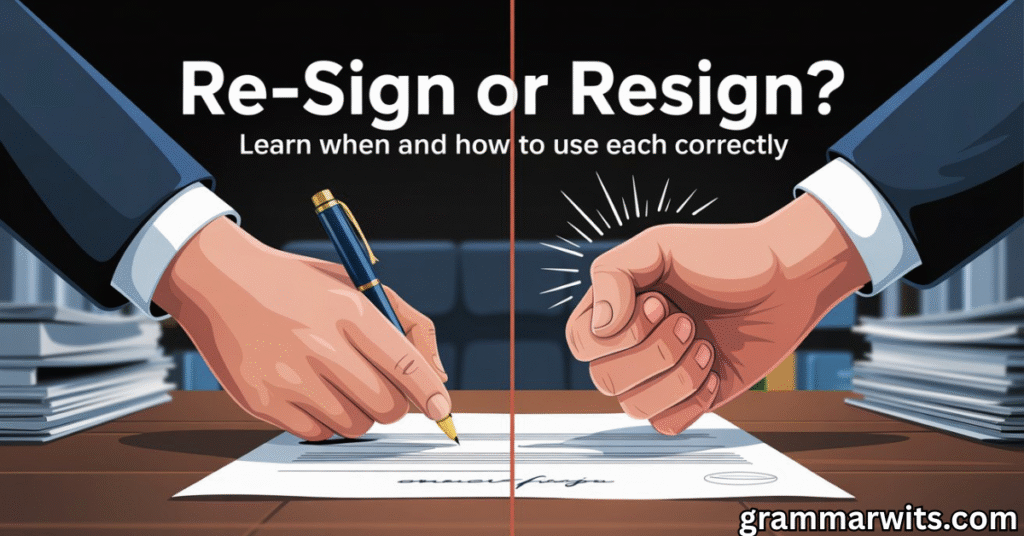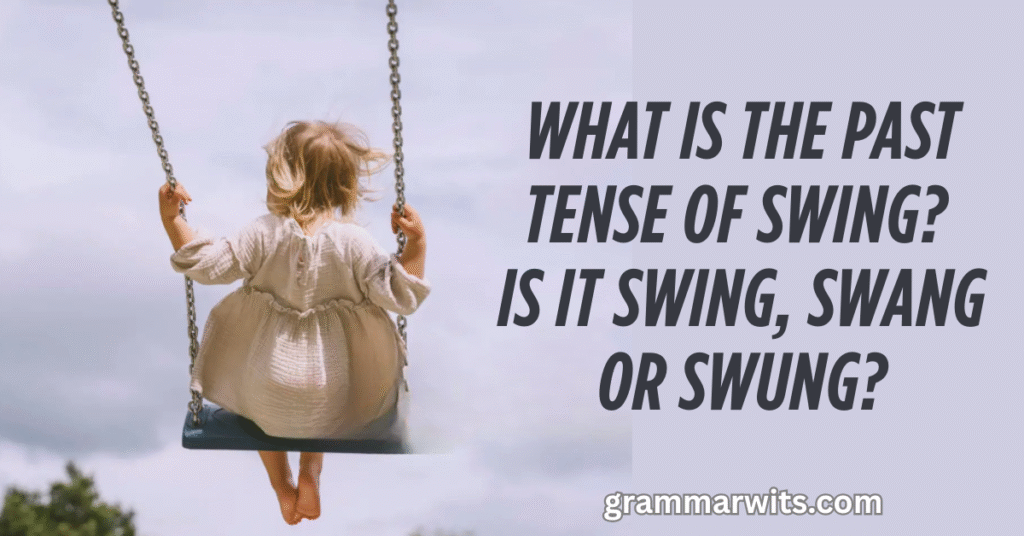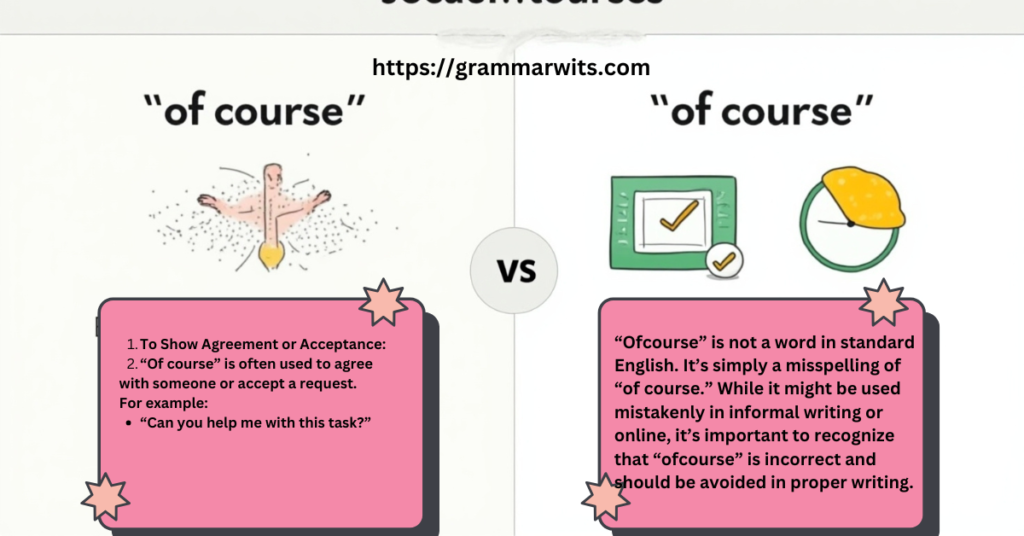GRAMMAR WITS

GRAMMAR
Re-sign or Resign? Learn When and How to Use Each Correctly
The terms re-sign and resign may look nearly identical, but their meanings couldn’t be more different. Re-sign—with a hyphen—means to...

GRAMMAR
What is the past tense of swing? Is it swing, swang or swung?
The past tense of “swing” refers to the grammatical form of the verb used to describe an action that occurred...

GRAMMAR
What is the Plural of Chief? Chiefs or Chieves?
Introduction The phrase “What is the Plural of Chief—Chiefs or Chieves” refers to a common grammatical query that often confuses...

GRAMMAR
Than vs Then: Avoiding Common Mistakes in English
Introduction: The English Language’s Similar-Sounding Dilemma “Than” and “then” are two small words that often cause big confusion. Despite their...

GRAMMAR
Arised or Arose: What’s the Correct Past Tense of Arise?
Introduction: The Arise Dilemma Arised or Arose Correct Past Tense of Arise refers to the grammatical clarification between two forms...

GRAMMAR
Long Term or Long-Term: What’s the Right Choice in Writing?
The phrase “long term or long-term” refers to two grammatically correct but contextually distinct expressions. “Long term” without a hyphen...

GRAMMAR
Is it Scrapped or Scraped? Let’s Clarify the Confusion
Is it scrapped or scraped lets clarify the meaning of these commonly confused words to avoid errors in writing.Scrapped and...

GRAMMAR
Of Course or Ofcourse: Which One Should You Use?
Introduction The phrase “of course or ofcourse which one is correct” refers to the distinction between the correct English phrase...




